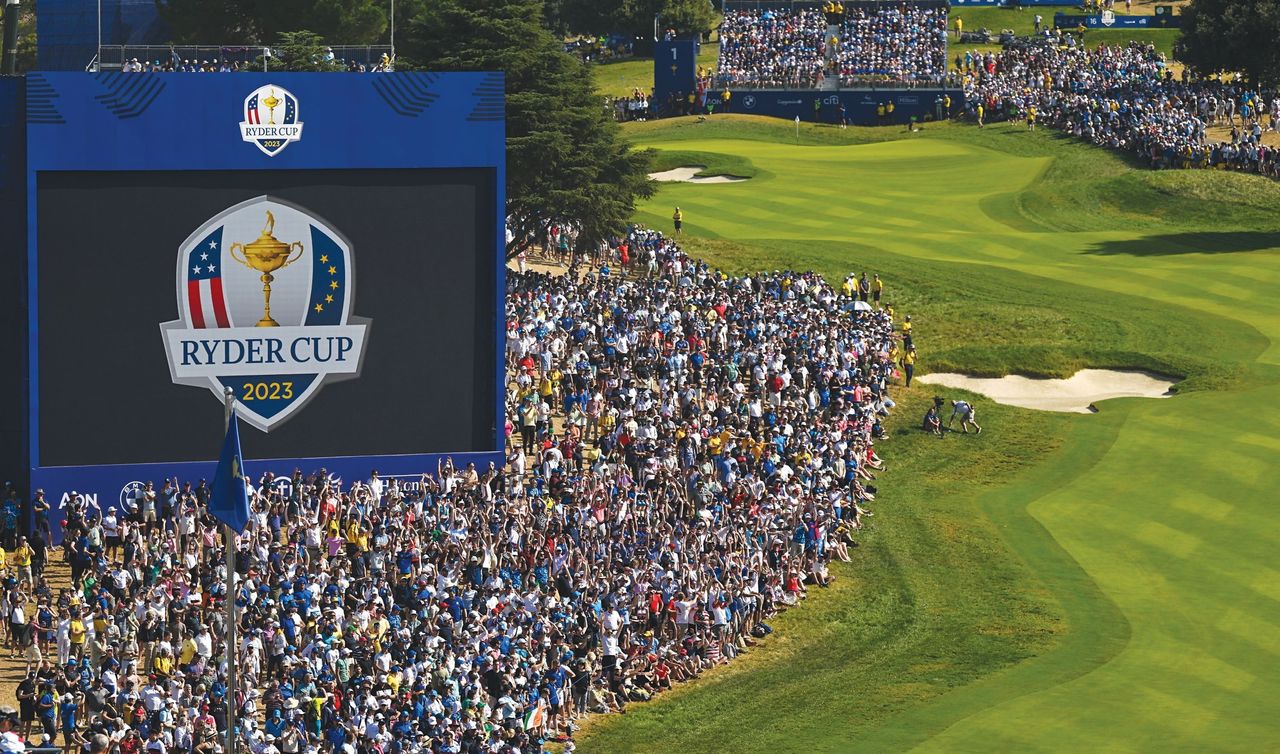
It is, Mr Google kindly informs me, 32 miles from Times Square in New York to Bethpage State Park and a golf course that likes to boast that if you can make it there, you can make it anywhere. Sound familiar?
There are five courses in this Long Island park but Bethpage Black is the most fiendishly difficult. It is, of course, where the 45th Ryder Cup matches will be played and it is a belter. Accentuating the difficulty is clearly Bethpage’s key marketing element. They attract golfers to this beast by hanging out a sign recommending this joint is ‘only for highly skilled golfers’.
Naturally its tee times are frequently filled with average to poorly skilled golfers who can’t wait to test their flickering talent against this course. Why? You know the answer. Because it’s fun to test yourself and, because it’s State-owned, this municipal remains affordable for the average man or woman. I applaud them.
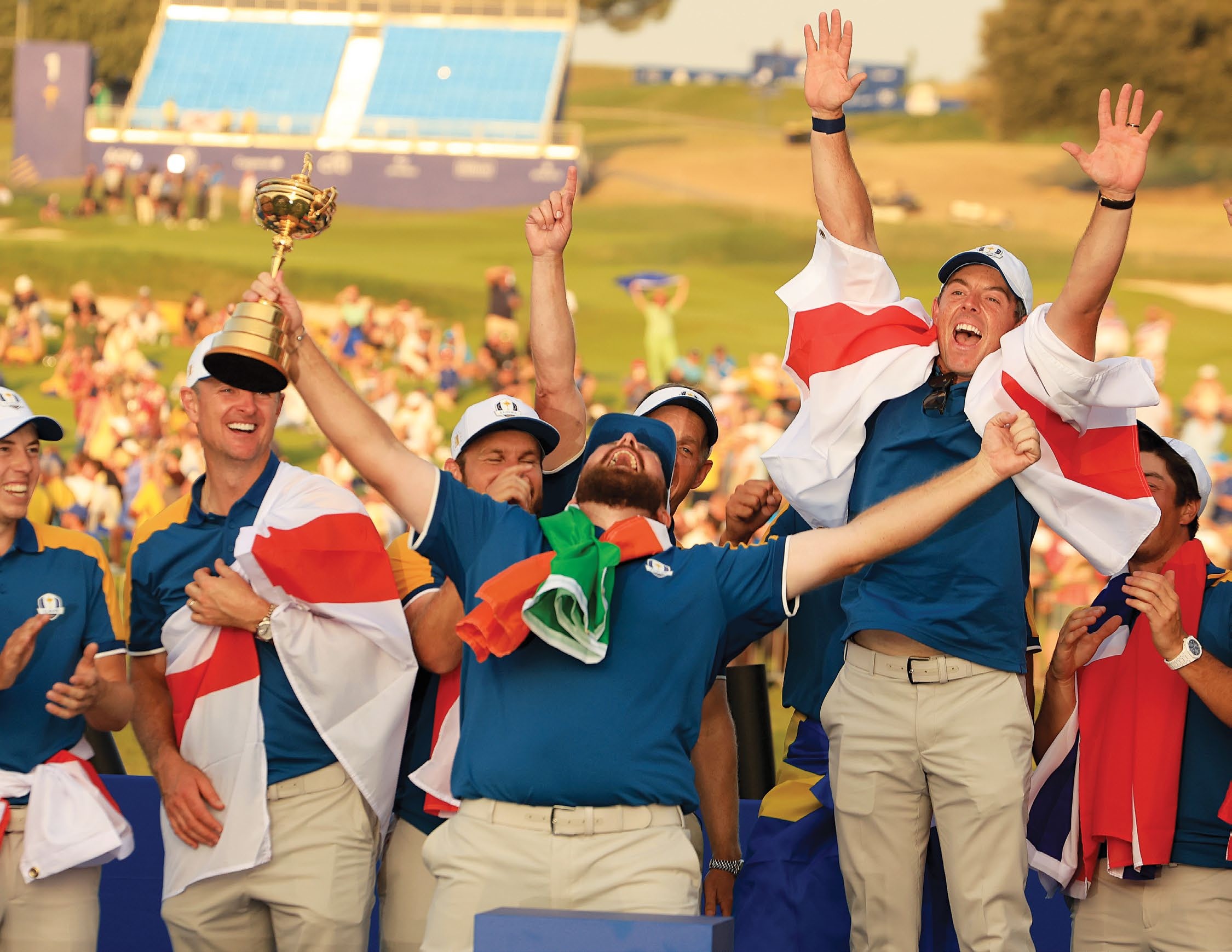
On the other hand just going to this Ryder Cup will cost a significant amount of money. Cheapest tickets for a practice day were £170+. If you fancied an actual match day it was £560+. Factor in travel, accommodation and the rest and this is potentially the most expensive Ryder Cup ever for European supporters crossing the Atlantic and taking on border control at the airport.
Despite this, the ticket allocation is sold out on match days (see Ryder Cup schedule and tee times), with 225,000 spectators signed up to appear at some point in the week. Mind you, this is 45,000 fewer than yomped around Marco Simone but still 65,000 more than the first Ryder Cup I attended in 1979 at The Greenbrier in ‘wild and wonderful’ West Virginia.
Is this a good thing? Well, it is if you’re counting the money, not so much if you’re trying to walk with the actual matches and properly see the action.
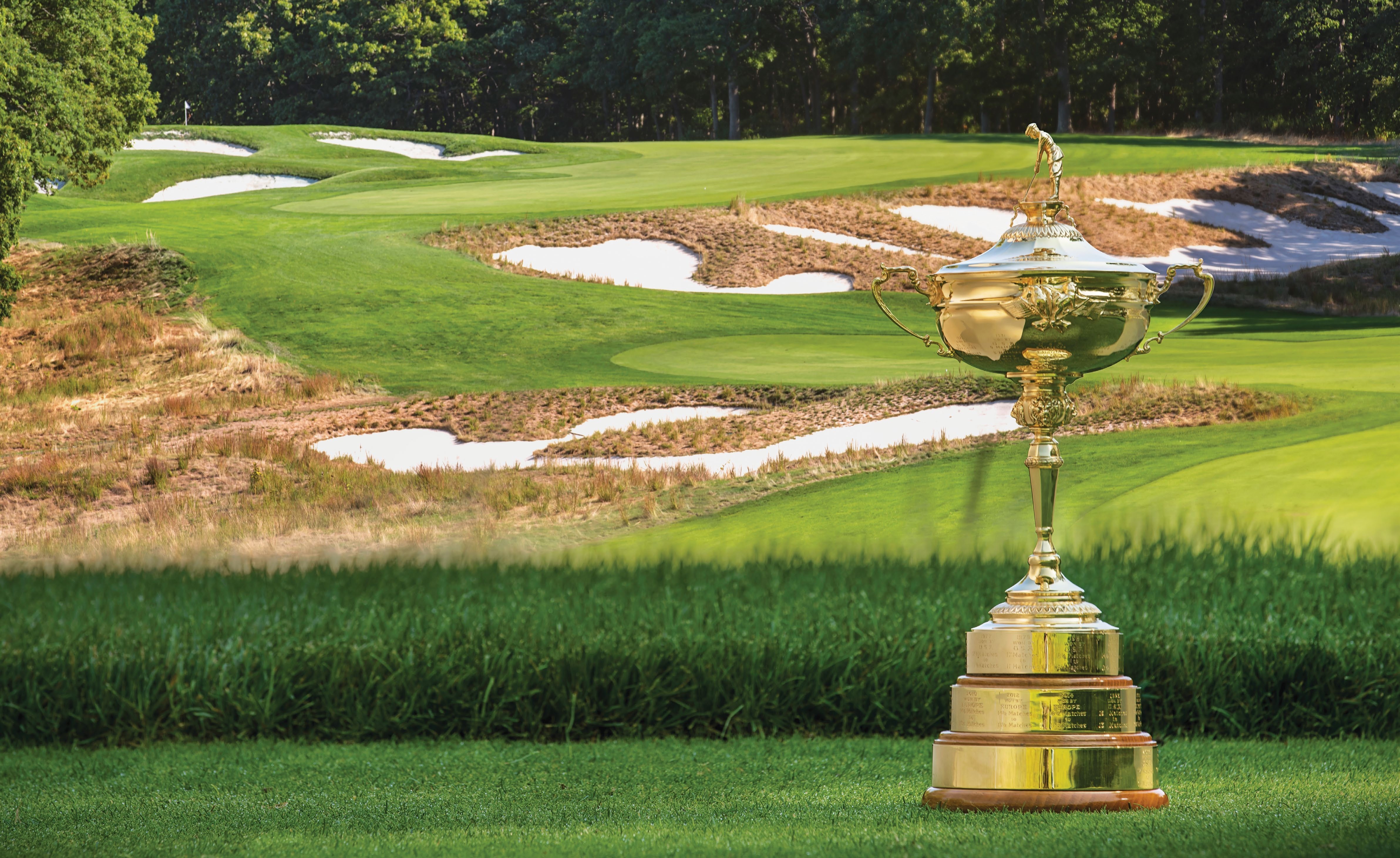
Personal highlights
But such is the scale and attraction of the modern-day Ryder Cup – matches to see and be seen at – that the public thirst to be there is unlikely to decline any time soon. I’ve been to 18 matches and enjoyed them all.
The best? It’s almost a score draw but The Belfry in 1985, when Tony Jacklin led Europe and beat the USA for what seemed like the first time in 1,000 years, stands clear, just ahead of Medinah in 2012. What Medinah didn’t have, but The Belfry did, was a flypast by Concorde while a military band played Land Of Hope And Glory, plus Seve spraying the crowd with champagne. Beat that.
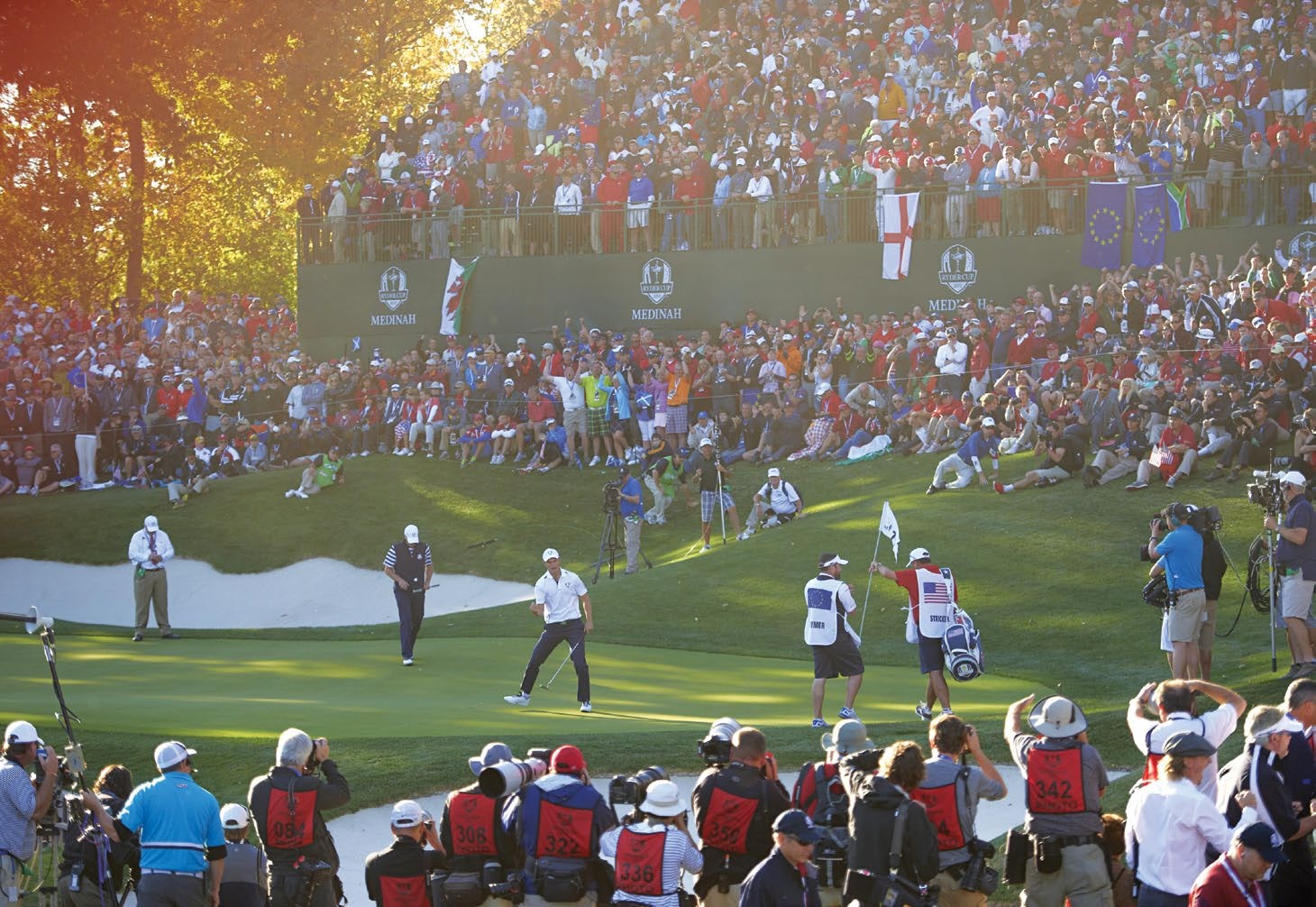
Actually The Belfry was Europe’s first ever win; the previous victory was by Great Britain at Lindrick in 1957. That was rather special, although I didn’t notice at the time, but so too was the European comeback at Medinah in 2012.
Ian Poulter led an audacious charge from a seemingly impossible position, Martin Kaymer finished it off and captain Jose Maria Olazabal cried as he looked heavenward to salute his pal Seve Ballesteros. Emotional? Just a bit.
“IN 2012, CAPTAIN OLAZABAL CRIED AS HE LOOKED H E A V E N W A R D T O SALUTE HIS PAL, SEVE. EMOTIONAL? JUST A BIT”
So what might this latest rumble be like? Without doubt it will be terrific. They always are. There will be arguments and brilliance and some surprises, the occasional shock. Perhaps some poor behaviour. Playing any team game in front of a New York sports crowd is a challenge.
New Yorkers are not only fiercely partisan, they are even more fiercely vocal and not necessarily in a good way. We’ll soon see how that unfolds but the Europeans know they’re walking into a possible firestorm.
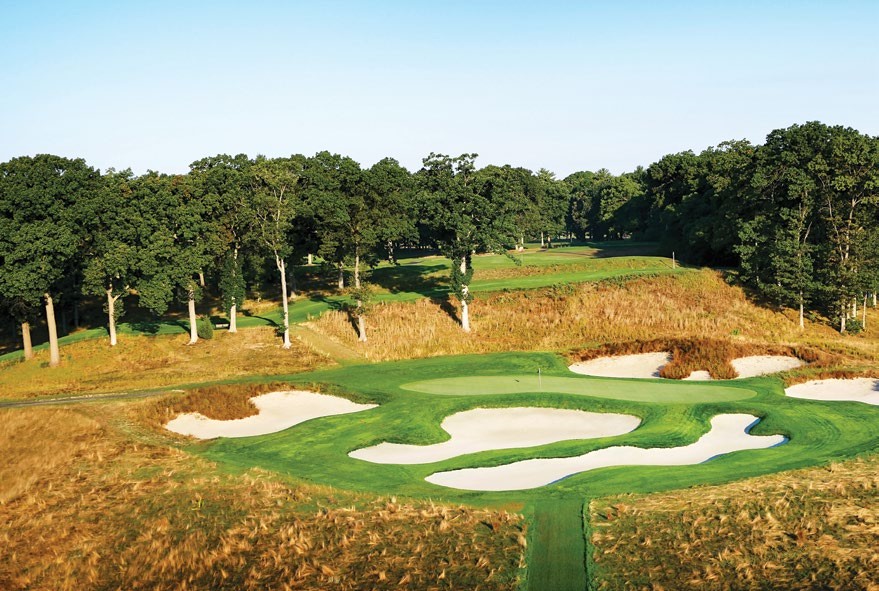
Hopefully things won’t get out of control but they might. This, however, only adds to the anticipation. Both teams know what’s coming, both have experienced players in their ranks and both know that these matches are as much a test of their mental and physical stamina as their ability to put sidespin on a ball.
Once the action starts, the players know it is a rolling case of practise, play, compete and, for the best of them, rinse and repeat several times for three hi-octane days. Pressure? You bet.
In 1989, when the action finished at The Belfry, I saw Nick Faldo. Nick was at his peak back then and the on-course leader for Europe. He played every session over the three days and when he appeared on Sunday evening he looked truly exhausted.
I shook his hand and said, “Well done, you look quite tired.” His replystill resonates. “Quite tired? I’m absolutely ******* knackered,” he groaned. Such is the physical and mental toll of a Ryder Cup.
The uninitiated may view the old game as a walk in the park and sometimes it’s just that, but not at a Ryder Cup where it can be as much an ordeal as a joy, more a test of a man’s mettle than his skill.
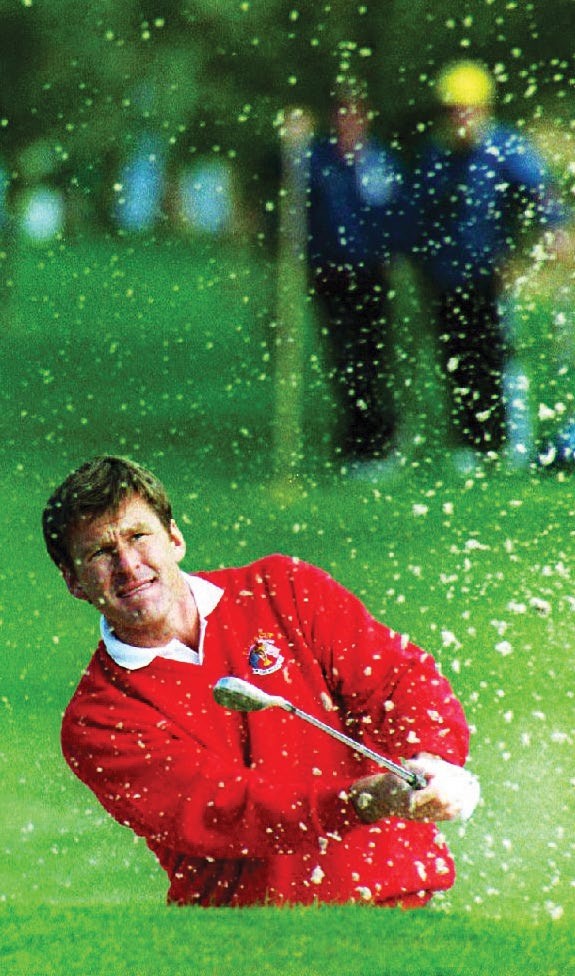
Home advantage
There is little doubt that there is a short-priced favourite for this particular contest, and that favourite is the United States of America. You may think this is because a glance at the Official World Golf Ranking shows that the Americans have eight players in the top ten, while Europe has two – Rory McIlroy and Ludvig Aberg.
Indeed there are ten Americans in the top 17, while Europe has six. Europe’s 12th-ranked golfer, as I write, is Thomas Detry of Belgium at 42.
You wouldn’t be wrong to take serious note of this apparent disparity but the bigger, most validated reason why America is favourite to win this rumble is simply because the data proves that playing at home is the biggest positive for either side.
The USA, for example, has not won in Europe in the 21st century. The Europeans have won twice on American soil in this time but not since Medinah 13 years ago.
So, is there any point in watching this Ryder Cup if it’s such an apparently foregone conclusion? Yes, of course there is. We haven’t yet got to the point where robots compete in the old match and so we can guarantee that no matter where a player is in the World Rankings it is no guarantee that he is going to be on top form in any given session.
“AMERICA IS FAVOURITE TO WIN AS THE DATA PROVES THAT PLAYING AT HOME IS THE BIGGEST POSITIVE FOR EITHER SIDE”
And it’s match play. This means that psychology, strategy, clear, clever thinking – call it what you will – is the important difference. Man vs man is so very different to man vs course.
It is not the better player who always wins, it is the calmer, more thoughtful and, most important of all, the most strategically reactive who usually prevails. Or, naturally, he can just play out of his skin and enjoy those vital slices of good fortune.
What is certain is that the role of the two captains is central to how these matches pan out. Possibly more than anything it is the performances of Keegan Bradley for America and Luke Donald for Europe that probably will dictate how this Ryder Cup goes.
Trying to gain an edge
Of course, the captains have always been central to Ryder Cup success. It is vital their prep work over the last two years has been both deep and imaginative. Donald showed in Italy that he enters these matches not just prepared but also innovative in that preparation.
His use of analytics data expert Edoardo Molinari proved a vital aid for the Marco Simone clash when it came to his six captain’s picks and to the pairings, where he not only forged genuine partnerships but also cleverly glued complementary skill sets together.
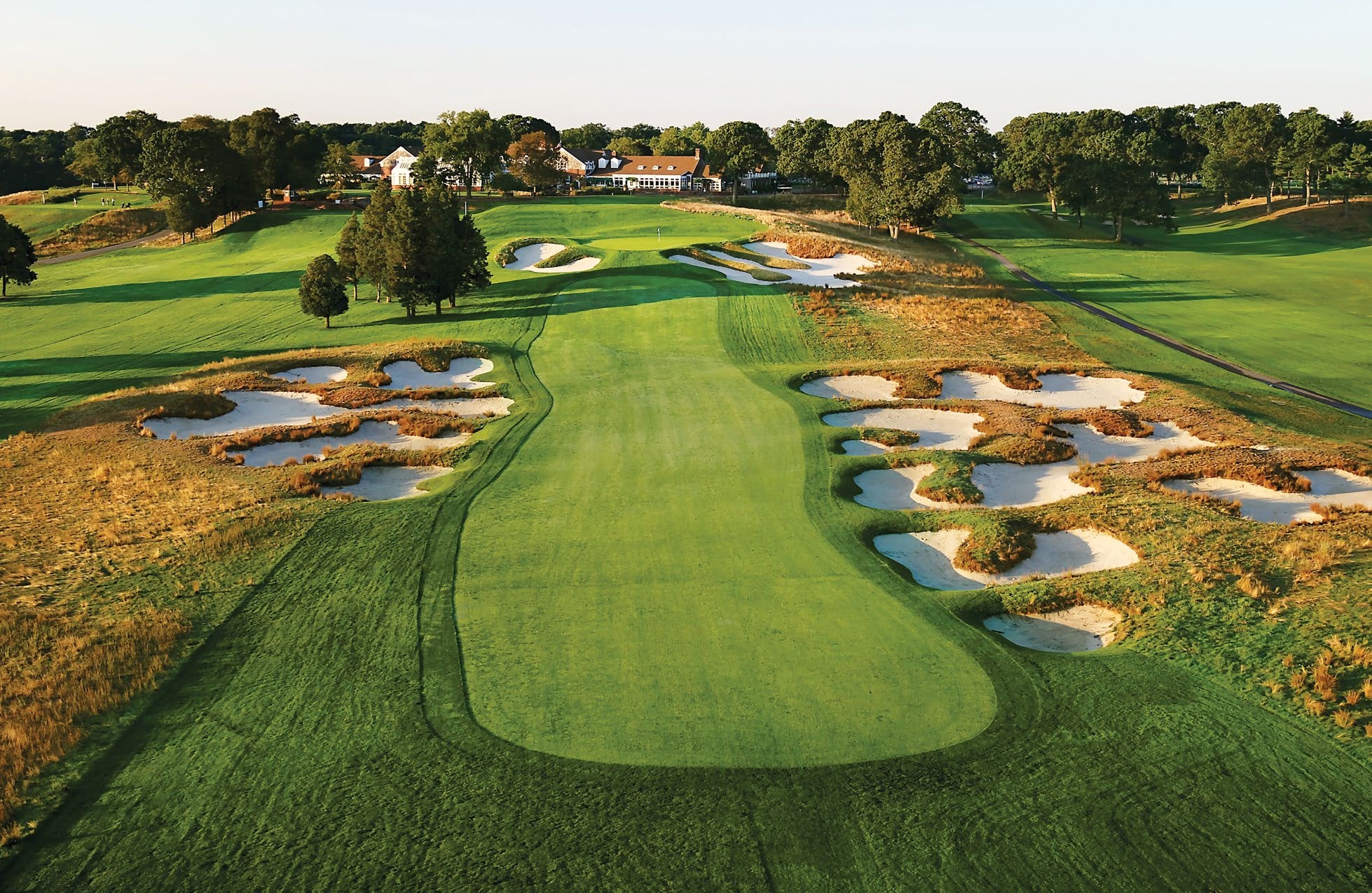
Now, Bradley will have his own data guy but no-one is better than Molinari at analysing these fine details and then applying them to a real-life situation.
Here are the facts as I see them... Bradley may or may not turn out to be an inspired leader but we know absolutely that Donald is terrific in this role. His ability to do the right thing and make the correct choice is a reflection of his own intelligence and his understated but serious outlook on life, the universe and golf.
My personal experience of Luke Donald over many years is that he is one of the most decent and bright elite sportsmen I have known. He combines this with a refined, steely approach to a game where he wasn’t the longest or the most flamboyant but he was World No.1 for 56 weeks 13 years ago, which is some testament to his resolute ambition.
His natural instinct is to bring quiet, thoughtful and, yes, passionate leadership to the party. Sometimes a man who is calm and subdued inspires more than the shouty ones. Not that Bradley is the shouty type either.
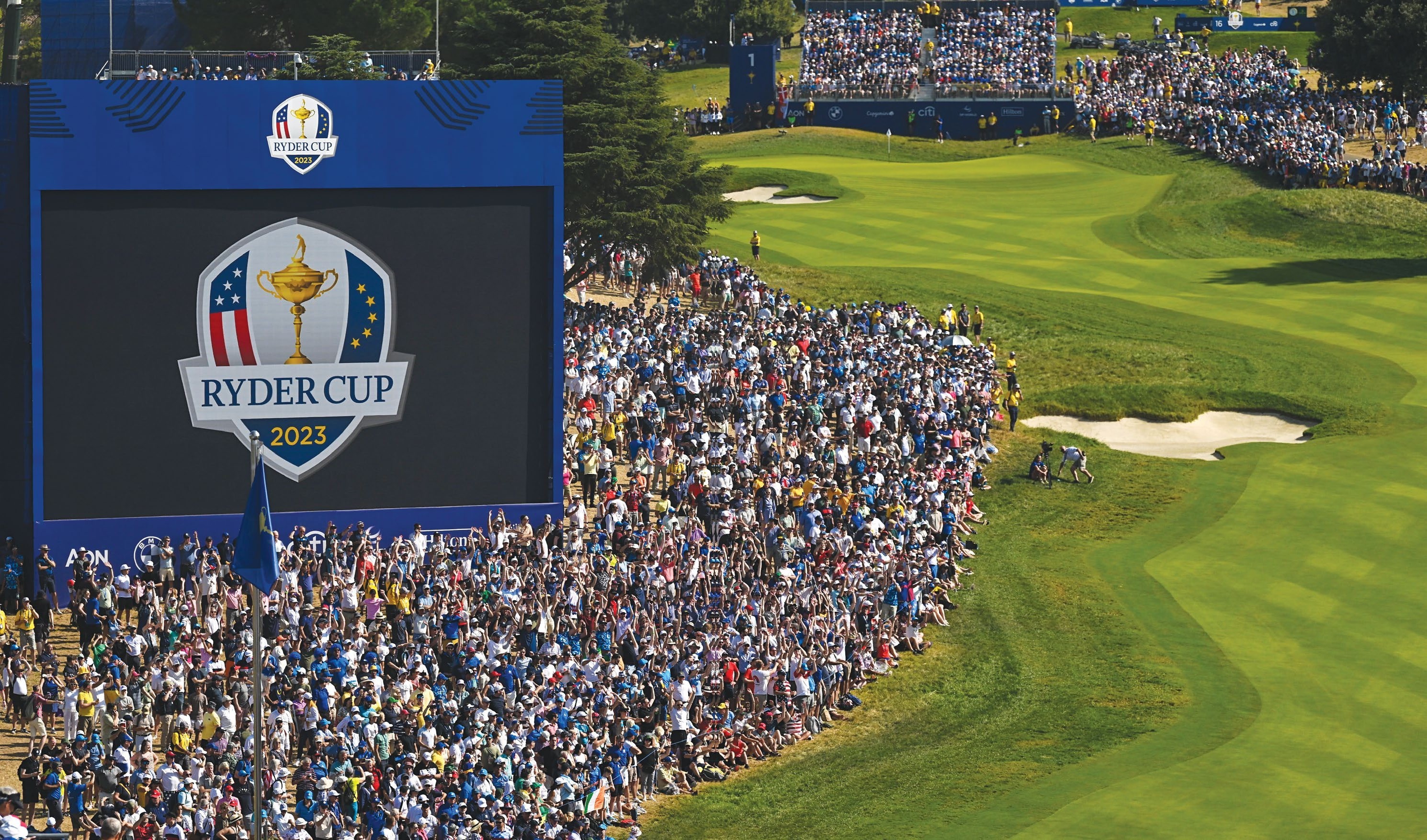
Preparing to do battle
Of course, Bradley can dictate how he would like the course set up. This includes the potential speed of the greens, width of fairways and, of course, pin positions. This used to be one of the key advantages of a home match but, for me, it no longer means much, if anything, at all.
Bethpage Black’s difficulty lies in its twisting terrain, the penal rough and many irritatingly challenging bunkers and thus the permanent need to find those fairways. Bradley is unlikely to try to increase this difficulty and it is hard to see what he could do to offer his team any advantage, although no doubt he will try.
Ordering up very fast greens was once a significant move for the Americans, just as slowing them down a little for matches over here was good for our chaps. This worked quite well back in the days when often half the European team were golfers essentially unfamiliar with the slickness of PGA Tour greens.
These were also the days when the Euros gathered in London to fly by Concorde to the States, a journey with their wives and partners that hugely helped create a sense of team, encouraged by a few drinks and a party atmosphere at 60,000ft.
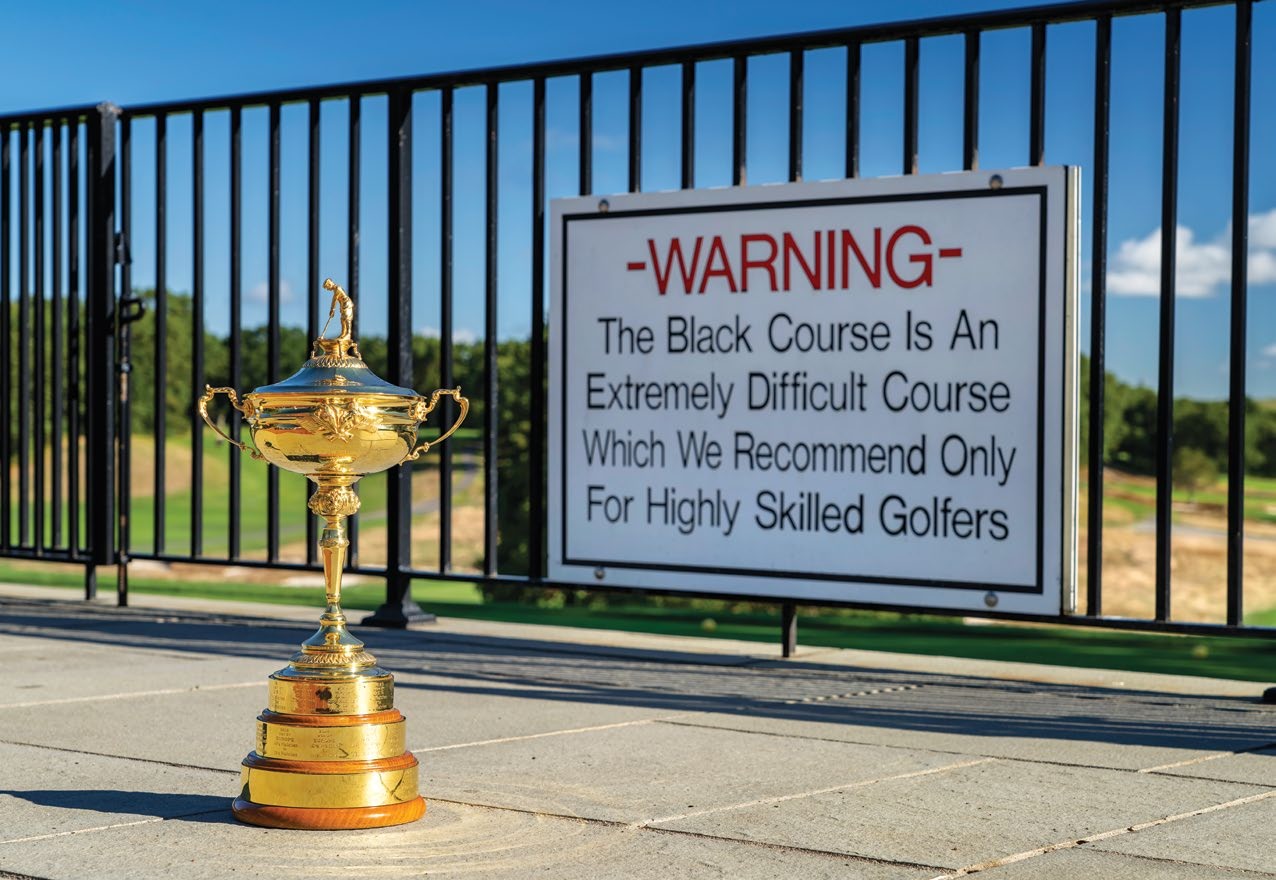
“LUKE DONALD’S NATURAL INSTINCT IS TO BRING QUIET, THOUGHTFUL AND, YES , PASSIONATE LEADERSHIP TO THE PARTY”
For years now this has been a memory. Whoever turns out for Europe in Long Island will be a full-time PGA Tour golfer; several will be pals with an American rival or three. The modern Ryder Cup is a different animal to what it was. On paper it is a clash between ‘nations’. In reality it no longer is.
The good news is that this has not diluted the competition. If Very high ticket prices don’t seem to deter Ryder Cup fans anything it may well be more acute, more wanted and possibly even more involved for the players and public.
Above all else it is fun to watch, a seesaw of glorious unpredictability, a tussle properly laced with emotion and desire. Enjoy it. And, guess what, no matter what the data guys say, I believe that the Europeans will win.
The louder the New Yorkers get – remember, Bryson DeChambeau warned recently that the locals would launch a “tsunami of noise” to rattle the Europeans – the likelier it is that a resolutely determined Rory and his pals may become yet more motivated. Let the games begin. Mind games, too.







